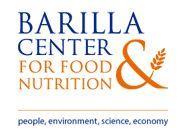
Fresh fruit and vegetables should be top of the shopping list for consumers who want the double hit of a healthy diet that is also sustainable.
That was the verdict of international think tank The Barilla Centre for Food Nutrition, which has produced an assessment of healthy food for people and sustainable food for the planet.
Analysis of the environmental impact of different foods included cultivation and raw materials, processing, manufacturing, packaging, transport, distribution, use, re-use and disposal, with the UK-based Fresh Produce Consortium (FPC) welcoming the results.
'It's great to see foods with higher recommended consumption levels like fresh produce are also those with a lower environmental impact,' said Nigel Jenney, chief executive at the FPC. This should give consumers the confidence they seek to enjoy fresh fruit and vegetables as part of a healthy diet and out into context their overall environmental footprint.'
When the Barilla Centre study compared the carbon, water and ecological footprints of different foodstuffs, it found that fruit and vegetables were far lower than meat and dairy products – beef, for example, scored 105 for its ecological footprint, compared with 3 for fruit and 14 for greenhouse vegetables.
'Food miles are often cited as a major contributor to the environmental impact of imported fresh produce, however, this report confirms the low footprint of fresh produce, regardless of its origin, and puts this in perspective compared to the impact of other foods,' Mr Jenney noted. 'The fresh produce industry is putting in place measures to achieve food production in a low-carbon world, calculating greenhouse gas emissions, reducing excess packaging and increasing re-use and recycling, as well as reducing food waste and recovering energy.
'Government departments can make a far greater impact to combat poor diets and rising obesity levels simply by having a cohesive policy for public sector food procurement which encourages greater consumption of fresh fruit and vegetables, in line with Defra's own definition of 'locally in season' which includes imported produce,' he added.



